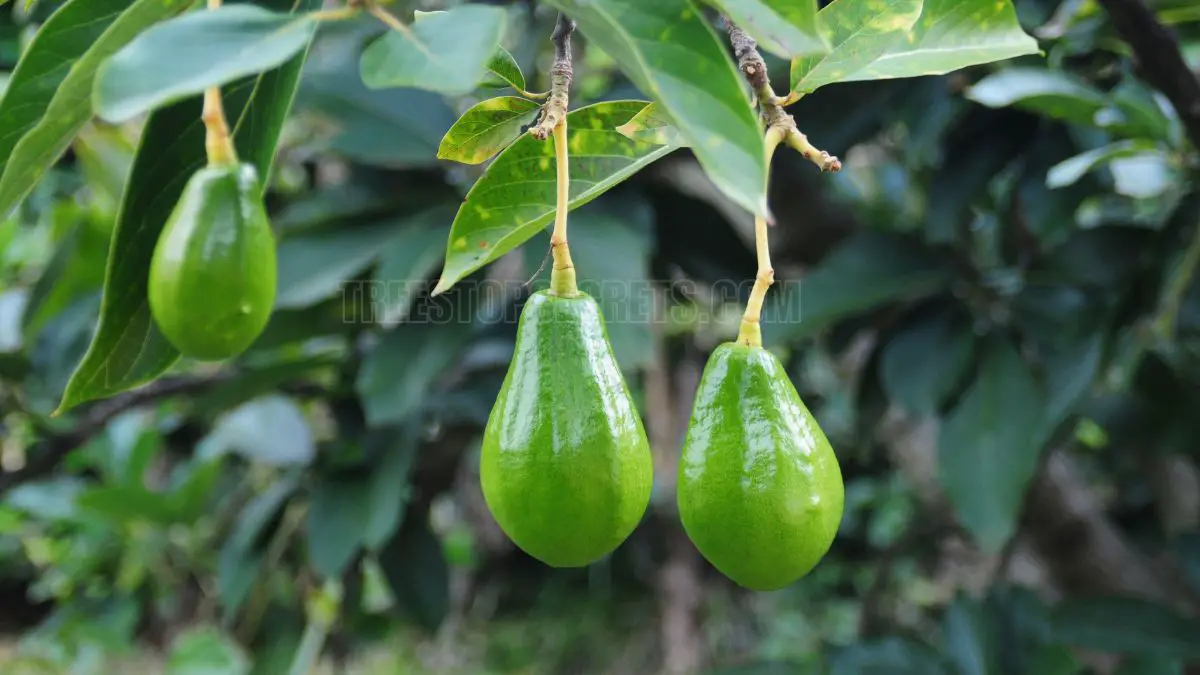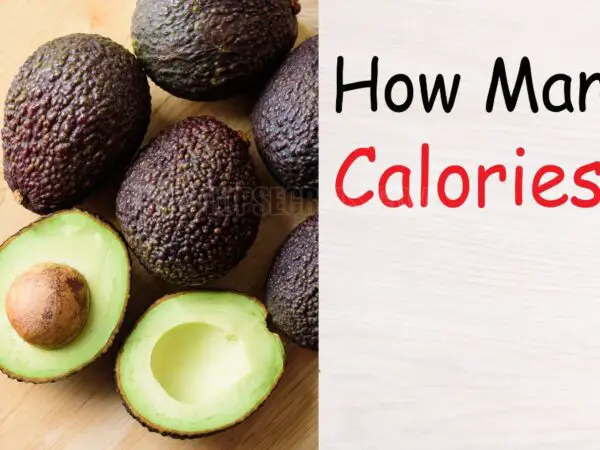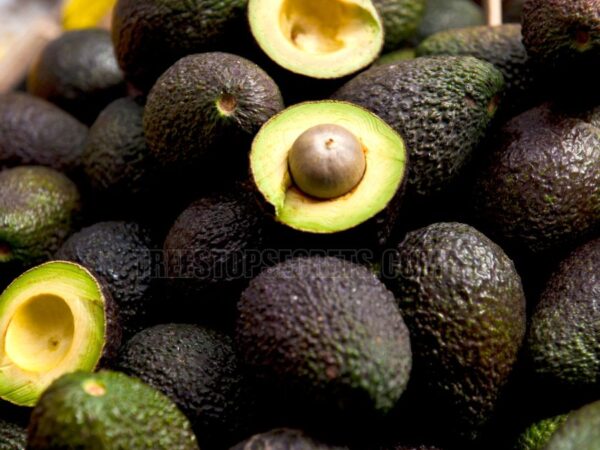Are you wondering how long it will take for your avocado tree to bear fruit? Growing an avocado tree requires patience, but the rewards are worth it. In this article, we’ll answer the most common question gardeners ask: How long does it take for an avocado tree to bear fruit? Plus, we’ll provide tips to help you along the way.
An avocado tree typically takes between 5 to 13 years to bear fruit, depending on whether it's grown from seed or a grafted sapling. Trees grown from seed take longer, usually around 10-13 years, while grafted trees can start producing in as little as 3 to 5 years. Patience is key when growing an avocado tree!
Curious to know more about how to speed up the fruiting process for your avocado tree? Stick with us as we share essential tips and tricks to ensure your avocado tree thrives. Whether you're a beginner or an experienced gardener, this guide will help you grow your own avocados at home.
Growing Avocado Trees
Growing your own avocado tree can be quite the adventure. It’s all about knowing what your leafy buddy needs to thrive. I remember diving into research when I decided to plant mine and, let me tell you, it's been quite a ride!
Ideal Climate for Avocado Trees
Avocado trees love it warm. Think of tropical vacations—that’s their happy place. They like temps between 60°F and 85°F (15°C to 30°C). Here’s a quick rundown:
| Temperature Range | What It Means |
|---|---|
| 60°F to 65°F (15°C to 18°C) | Staying alive, but not really happy |
| 65°F to 85°F (18°C to 30°C) | Living the dream, thriving |
| Over 85°F (30°C) | Getting a bit too hot to handle |
And don’t forget, they need a few weeks of cooler weather in the fall and winter to get some good blooms going.
Avocado Tree Growing Conditions
Beyond the weather, avocados have some other needs. They’re kind of picky about their soil, preferring it to be between 68°F and 77°F (20°C to 25°C).
They’re also sunbathers. Six to eight hours of sunlight each day keeps them happy and productive. Here's a quick peek at their preferences:
| Growth Condition | Perfect Range |
|---|---|
| Soil Temp | 68°F to 77°F (20°C to 25°C) |
| Sunlight | 6 to 8 hours daily |
Stick to these guidelines, and your tree will be dreaming of dropping its first avocado in no time. Trust me, waiting for that first fruit feels like forever, but when it finally happens, it's totally worth the patience.
Dive into Avocado Tree Varieties
Growing my own avocado tree has been one wild ride, and knowing the different types of avocado trees made all the difference. Let's break it down to the basics: Type A and Type B avocado trees.
Type A and Type B Avocado Trees
Here's the skinny—avocado trees are split into Type A and Type B to help with pollination and getting those yummy avocados. Type A trees start their day as female flowers in the morning and switch to male in the afternoon of the next day. Type B trees do the opposite: they're female in the afternoon and go male by the next morning.
Think of it like this:
| Flower Type | Female Phase | Male Phase |
|---|---|---|
| Type A | Morning Day 1 | Afternoon Day 2 |
| Type B | Afternoon Day 1 | Morning Day 2 |
This quirky pattern, called "synchronous dichogamy," ensures they can cross-pollinate easily and pump out more fruit.
Early-Bearing Avocado Varieties
I found out some avocados are like that overachiever in class—ready to produce fruit way sooner. Types like Pinkerton, GEM, Lamb, and Carmen are quick off the mark. Pinkerton trees can get started in under two years if planted from a solid five-gallon container (Greg Alder).
Here's the scoop on fast fruiters:
| Variety | Time to Fruit (Years) |
|---|---|
| Pinkerton | < 2 |
| GEM | 2 - 3 |
| Lamb | 2 - 3 |
| Carmen | 2 - 3 |
| Hass | 3 - 4 |
Take Hass avocados, for instance—they generally take about three to four years to gear up, based on both expert tips and my own trials. Knowing your avocado variety helps manage those wait-time expectations for when you'll finally get to munch on homegrown avocados.
So, whether you're planting for a speedy harvest or just love the process, there’s an avocado tree out there for you. Happy growing!
Avocado Tree Fruit Production Made Simple
When I first decided to grow avocado trees, I couldn't wait to see them bear fruit. Here's what I've learned along the way about what affects fruit production and how long it actually takes.
What Makes an Avocado Tree Bear Fruit?
Lots of things come into play when figuring out when your avocado tree will start giving you those delicious green goodies. Here’s what you need to know:
| Factor | Why It Matters |
|---|---|
| Sunlight | These trees love soaking up the sun – they need about 6 to 8 hours every day. |
| Pollination | Bees are key here. A tree can throw a million flowers but needs bees to turn them into avocados. |
| Watering and Soil | Consistent watering and soil that drains well keep the roots and the tree happy. |
| Temperature | Avocados like it when it’s not too hot and not too cold, ideally between 60°F and 85°F. |
How Long Until You Get Avocados?
Waiting might not be your strong suit, but growing avocados will test your patience. Here's a rough idea of how long you'll be waiting based on how you start:
| How You Start | Time to Fruit |
|---|---|
| From a sapling | 3 to 4 years, if you take good care of it |
| From a seed | 5 to 13 years, takes its sweet time |
Nothing beats the thrill of seeing those first avocados. It feels like a small miracle when they finally show up on your tree!
Avocado Tree Care Tips
Taking care of avocado trees is no joke! From what I've learned, proper upkeep can make a world of difference in how quickly and abundantly your tree bears those tasty avocados.
Pruning Your Avocado Tree
Pruning isn't just a chore; it's a necessity—especially since these trees can get pretty massive. Some types like Reed, Bacon, and Hass can reach up to 35 feet in a couple of decades. To keep things manageable (think under 15 feet), you’ve got to break out those shears on the regular.
Here’s what I stick to for a healthy trim:
- When to Prune: Aim to prune in late winter to early spring, just before new growth kicks off.
- How to Prune: Chop off dead or sick branches, thin out clumped areas to let air flow through, and shape the tree so every part gets some sunlight love.
- How Often: Once a year should do it. This yearly trim helps keep the tree at the right size and boosts fruit production.
Quick pruning reference just for you:
| Task | How Often? | Best Time of Year |
|---|---|---|
| Cut dead branches | Every year | Late winter to early spring |
| Thin out dense areas | Every year | Late winter to early spring |
| Shape the tree | Every year | Late winter to early spring |
Pumping Up Fruit Production
We all want more avocados, right? Here’s how I make sure my tree is maxed out on fruit:
- Space It Out: If you’ve got more than one tree, give them enough room. This helps with air and sunlight.
- Watering: I water deeply but not too often. When the topsoil feels dry, it's time to give it a drink.
- Fertilize: A balanced fertilizer in the growing season keeps the tree happy and healthy.
- Pollination: An avocado tree can drop over a million flowers during its bloom period. Understanding this can up your fruit game.
So there you have it. By keeping up with regular pruning and smart tree care, you'll be enjoying home-grown avocados for years.
Avocado Flowers and Pollination
Getting to grips with how avocado trees flower and pollinate can boost your growing game. Understanding their habits can make a world of difference to fruit production.
Avocado Flower Behavior
Avocado trees have two different flowering types: Type A and Type B. Here’s how it works: Type A varieties show their female side in the morning of the first day, while Type B varieties go female in the afternoon (UC Riverside). This quirky schedule encourages cross-pollination, which is a big win for fruit production.
| Flower Type | Opens as Female | Morning/Afternoon |
|---|---|---|
| Type A | Yes | Morning |
| Type B | Yes | Afternoon |
Having both types of trees nearby can really help with getting the pollen where it needs to go. The staggered timing means a flower on one tree is more likely to get pollen from another tree, making fruit development more successful.
Avocado Tree Pollination
Pollination is crucial for avocado trees because it directly impacts fruit production. During flowering, pollen from a male phase hits the stigma of a female phase of another flower, leading to fertilization.
Mixing different types of avocado trees is often recommended to boost pollination chances. This method can significantly improve your harvest. In my own garden, planting both Type A and Type B trees made a noticeable difference in the number of avocados we got.
Hass avocado trees usually take about three to four years to start producing fruit. Trees grown from seeds might take a bit longer—sometimes up to six years. Knowing this can help manage your expectations when you’re nurturing young trees.
Understanding how avocado trees flower and ensuring effective pollination can make a big difference in how well they grow. With a little patience and the right mix of trees, you’ll get the hang of it and enjoy a bountiful avocado crop.
Picking and Keeping Your Avocados Fresh
Picking Avocados
Avocados don't ripen on the tree. They mature there, but the real magic begins once you pick them. If you've planted an avocado tree, expect it to start giving you juicy fruits after three to four years (California Avocado). When it comes to Hass avocados, one of the favored types, they usually produce their first batch around the five-year mark.
How to Pick Avocados:
- Maturity Check: Look for signs like color changes and feel – are they hard or starting to soften?
- Select Picking Method: Grab some pruning shears and snip them off gently. Avoid yanking them off the tree.
- Gentle Handling: Drop your picked avocados into a basket to keep them from getting bruised.
| Avocado Variety | Years Until Fruiting |
|---|---|
| Hass | 5 years |
| Other Varieties | 3-4 years |
Ripening and Storing Avocados
Once picked, keep your avocados out on the counter, and they'll soften up in about 7 to 21 days, depending on when you picked them (California Avocado).
Want them to ripen faster? Toss them in a paper bag with some ripe bananas or apples. This trick uses ethylene gas from the ripe fruits to speed up the process. Looking to slow things down? Stick them in the fridge, and they'll stay fresh longer.
Ripening Hacks:
- Speed Things Up: Pop them in a paper bag with bananas or apples.
- Slow It Down: Refrigerate to keep them from ripening too fast.
Best Storage Ideas for Ripe Avocados:
| Storage Method | What It Does |
|---|---|
| Room Temp | Lets them keep ripening (7-21 days) |
| Fridge | Slows things down, keeps 'em fresh longer |
Knowing how to pick and store avocados makes a world of difference. With these tips, you'll be munching on tasty, homegrown avocados in no time. Enjoy the creamy goodness!
How Long Avocado Tree Bear Fruit: Patience and Care Lead to Rewarding Results
Growing an avocado tree may test your patience, but with proper care, you’ll be rewarded with delicious, homegrown fruit. Whether you’ve planted from seed or bought a grafted tree, knowing when your tree will bear fruit helps set realistic expectations. Keep nurturing your tree, and soon, you’ll enjoy the fruits of your labor!
FAQs about How Long Avocado Tree Bear Fruit
Q: How long does it take for an avocado tree grown from seed to bear fruit?
A: An avocado tree grown from seed can take anywhere from 10 to 13 years to start producing fruit. Seed-grown trees usually take longer because they need time to establish themselves and mature before bearing avocados.
Q: Can a grafted avocado tree bear fruit faster?
A: Yes, grafted avocado trees typically bear fruit much sooner than seed-grown trees. They often start producing fruit within 3 to 5 years, making them a faster option for those eager for a harvest.
Q: What can I do to speed up the fruiting of my avocado tree?
A: To encourage faster fruiting, provide your avocado tree with well-draining soil, plenty of sunlight, and regular watering. Fertilizing with a balanced fertilizer and proper pruning can also help promote healthy growth and quicker fruit production.
Q: Do avocado trees need a second tree to produce fruit?
A: While avocado trees can self-pollinate, having a second tree nearby can significantly increase fruit production. Cross-pollination between two different types of avocado trees often leads to a more abundant harvest.
Q: Is there a specific time of year when avocado trees bear fruit?
A: Avocado trees typically bear fruit in late winter or early spring, depending on the variety and climate. However, trees can have irregular fruiting cycles, so some years may yield more fruit than others.
Image Source: Paid image from CANVA





